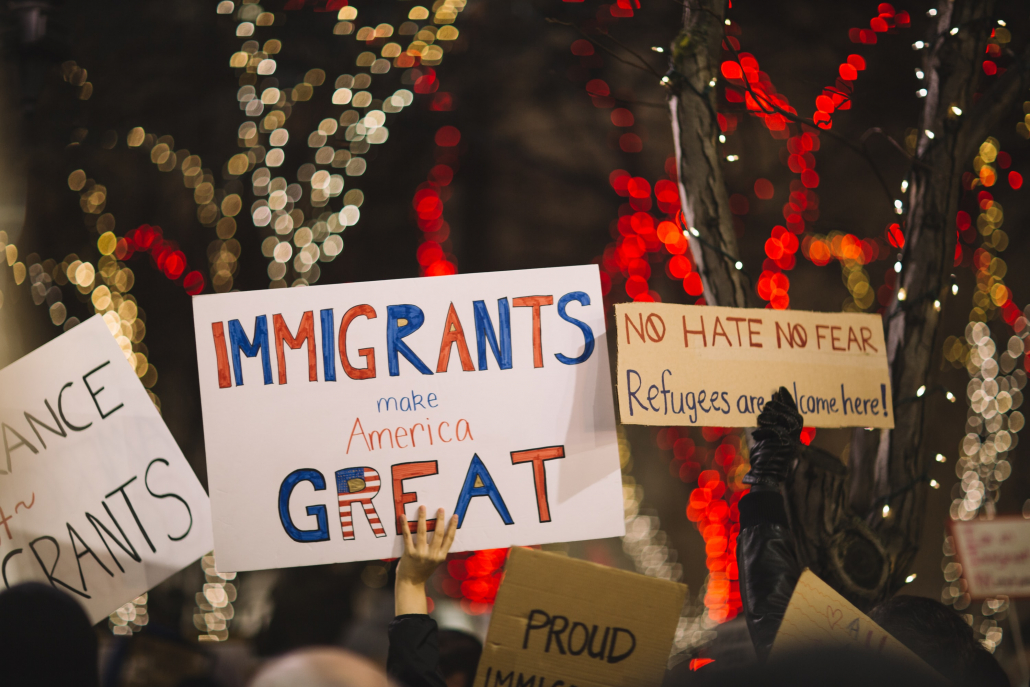Putting the ‘I’ in Immigrant: Undocumented immigrants deserve more from our immigration system

Up until my early teenage years, I held a green card. I remember seeing the card itself and not thinking very much about it. All in all, it was true to its name; the green coloring was apparent as my photo and personal information were cast in a pronounced green hue. It was something kept handy in my mother’s wallet but was never really taken out.
I remember the minute details of my brushes with the immigration system most vividly. When my passport was close to its expiry date, my permanent resident status meant that I would need to wait for hours outside the Philippine embassy with my mother. It meant that I had to check a different box occasionally or wait in a separate line at the airport.
I was too young to be consciously aware of the privilege that a card had afforded me or the way in which the immigration system favored me for nothing more than sheer chance.
The system itself is as old as the nation. Built for the purpose of exclusion and control, the United States immigration system is one that continues to criminalize entire peoples on the basis of race, class and world standing. U.S. exceptionalism and white supremacy have acted as the foundation of U.S. immigration for far too long. The notion that anyone is “illegal” is despicable and should be despicable to those that back legislation written for the purpose of dehumanizing what is foreign.
Last Monday, U.S. immigration agencies were advised to forgo the term “illegal alien” under presidential order. The term “alien” in the U.S. legal system was made a fixture by George Washington’s Naturalization Act in 1790. Since then, we have maintained the oppressive rhetoric, carrying the practice through to the 21st century.
The difference in labeling between my “permanent resident” status and the phraseology afforded to those without documentation does not escape me. It should not escape any of us that there are people, many of which are children, throughout the nation who are simply guilty in the eyes of the law for existing in the space they find themselves in.
Terminology is the tip of the metaphorical iceberg.
I may not have been born in this country, but I was raised knowing the tenets of what is afforded to all people on the basis of their valued human life. What is unalienable — life, liberty and the pursuit of happiness — hangs in the balance for our undocumented immigrants, and it has only recently become very clear to me why.
As a citizen, pre-law student and someone who has come face to face with the immigration system, the depth of my concern is far-reaching for the sickness that plagues modern day immigration.
Attorney and professor Alina Das identifies the roots of racial discrimination and criminalization within the immigration system. Her work highlights that the system itself “has thus long been about power” and “oppression.”
Undocumented immigrants deserve more. Defenders of restrictive immigration falsely contend that immigrants are a drain on U.S. resources. In past years, the vision of what will “make America great” has depicted a version of the U.S. that is limiting of immigration and punishing of its undocumented immigrants. Human life has become politicized in a manner that is complicit in countless Due Process clause violations.
As a University and as a community, we know that the vibrancy of our culture and the strength of our workforce is dependent on its immigrant men and women. In times of crisis like the one we face now, immigrants comprise a significant number of the essential workforce.
Just as well, undocumented children deserve more. I have spent hours poring over texts that stipulate protections for our nation’s children. I think of my three younger sisters and am continuously reminded of why we protect the childhood experience. To know that there are children standing alone in immigration proceedings should deeply concern us all.
I know my rights because I have studied them with the motivation of knowing their history. My rights and the ill-fitting protections for undocumented immigrants are not the same, and it is arguably meant to be this way as a tactic for maintaining control. Undocumented immigrants are not guaranteed counsel in removal proceedings; furthermore, they are not guaranteed an appearance before a judge in expedited proceedings.
Both the justice system and immigration system have failed immigrant communities in being unable to ensure the vital protections which make the U.S. legal system theoretically fair. They deserve more.
As human beings, vital members of society and contributors to their communities, undocumented immigrants deserve an immigration system that acknowledges their inherent rights.
In expanding discussions of equality and social justice, the shortcomings of the immigration system need to be addressed. As a young immigrant in the U.S., I continue to hold out hope that we’ll realize a nation’s greatness is determined by how it treats the most vulnerable, not in its capacity to strong-arm what it fears.
Noelle Natividad is a sophomore writing about the immigrant experience in America. Her column, “Putting The ‘I’ In Immigrant,” usually ran every other Friday.

